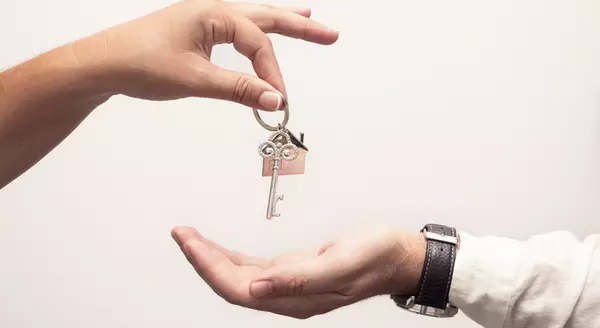What Is a Mortgage? The Ultimate Guide to Home Loans

A mortgage is a loan that a lender gives you to help you finance the purchase of a house. When you take out a mortgage, you agree to pay back the loan over a set period of time, usually 15 or 30 years. Each month, you'll make a payment towards the principal (the amount you borrowed) and the interest (the fee the lender charges for lending you the money).
Mortgages are one of the most common types of loans people take out when buying a home, but they're not the only option. In this guide, we'll walk you through everything you need to know about mortgages, from how to get one to whether it's the right type of loan for you.
How Do Mortgages Work?
Mortgages are just one type of loan available to homebuyers. Mortgages are secured loans, which means that if you can't make your payments, the lender can repossess your home and sell it to recoup their losses. Secured loans are generally seen as less risky for lenders, which is why they often offer lower interest rates than unsecured loans.
Another common type of loan is an unsecured personal loan. Unsecured loans don't require any collateral, so if you can't make your payments, the lender can't take your home away from you. However, because they're seen as riskier for lenders, unsecured loans often come with higher interest rates than secured loans.
Mortgage terms can vary considerably from one lender to another. Some common factors that will affect the terms of your mortgage include:
1. The size of your down payment
Lenders will typically require a larger down payment for borrowers with lower credit scores or who are buying more expensive homes. A larger down payment means less risk for the lender, so they may be able to offer more favorable terms.
2.The type of property you're buying:
Lenders may be more willing to lend money for a primary residence than an investment property. This is because primary residences are generally seen as less risky investments since people are more likely to live in them long-term and keep up with their payments.
3. Your credit score
Borrowers with higher credit scores will usually qualify for better mortgage terms than those with lower credit scores. This is because higher credit scores indicate that borrowers are more likely to make their payments on time.
Mortgages are just one type of loan available to homebuyers, but they're by far the most common. In this guide, we've covered everything you need to know about mortgages, from how they work to whether they're right for you. If you're thinking about taking out a mortgage, use this guide as a resource to help you compare different offers and find the one that's best for your needs.
Categories
- All Blogs (781)
- Buyer's Market (9)
- Cash Flow (2)
- Design and Maintenance (42)
- Featured Listings (6)
- First-Time Home Buyers (39)
- Holidays (5)
- Home For Sale (7)
- Home Loans (3)
- Home Pricing (3)
- Home Showing (2)
- Homeowners (24)
- Investment Properties (9)
- Market Update (10)
- Mortgages (9)
- Real Estate Fun Facts (12)
- Real Estate Investors (22)
- Real Estate Marketing (13)
- Seller's Market (4)
- Selling Your Home (20)
- Sold Homes (12)
- South Jersey Updates (26)
- This Weekend Happenings (28)
- Tips For Home Buyers (17)
Recent Posts

![Builders Are Building Smaller Homes [INFOGRAPHIC]](https://img.chime.me/image/fs/chimeblog/20240504/16/w600_original_39aacbf5-2468-464c-acda-b86e3e29eff4-png.webp)








GET MORE INFORMATION

